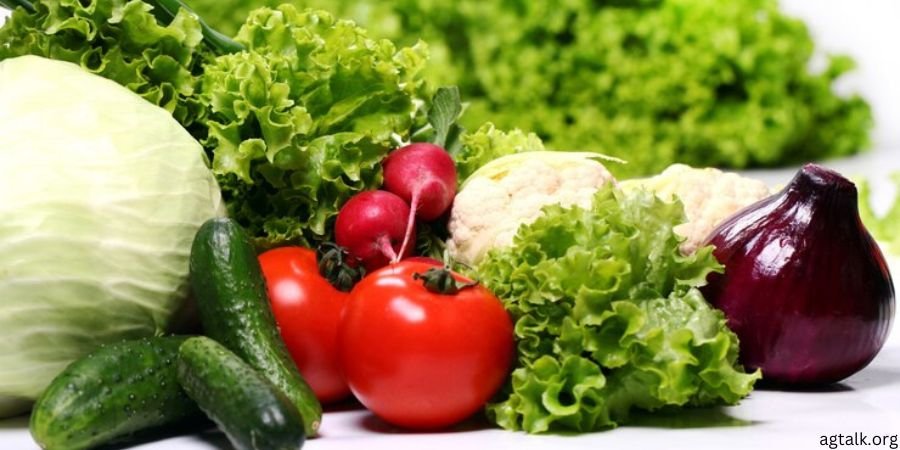Ỏganic Living: The Complete Guide to Health and Sustainability
In today’s health-conscious world, the term ỏganic has gained significant popularity. It refers to products produced using ỏganic farming methods that prioritize environmental sustainability and consumer health. Understanding what organic truly means and its benefits can empower consumers to make informed choices.
Brief History of Ỏganic
The history of organic farming traces back to ancient agricultural practices that emphasized natural methods and soil fertility. In the 20th century, industrial farming introduced synthetic chemicals, prompting a resurgence of interest in organic principles. Pioneers like J.I. Rodale advocated for sustainable agriculture, leading to the establishment of organic standards and certifications. Today, organic farming continues to grow in popularity, driven by concerns over environmental sustainability and health benefits.
The Rise of Industrial Farming
With the advent of industrial farming in the 20th century, agriculture became more about quantity than quality. This shift led to increased use of synthetic chemicals and mono-cropping, which depleted soil nutrients and harmed ecosystems.
The Ỏganic Movement
In response to these changes, the ỏganic movement emerged in the mid-20th century. Pioneers like J.I. Rodale in the United States championed the cause, advocating for a return to natural farming methods. Today, organic farming is a global phenomenon, supported by legislation and certification standards.
Benefits of Ỏganic Food
Ỏganic food offers enhanced nutritional value with higher levels of vitamins, minerals, and antioxidants compared to conventionally grown food. By avoiding synthetic pesticides and fertilizers, ỏganic farming promotes better health outcomes and environmental sustainability through improved soil health and reduced chemical pollution.
Health Benefits
Consuming ỏganic food reduces exposure to harmful pesticides and chemicals, lowering the risk of health issues such as allergies, asthma, and even certain cancers. Organic food also tends to be fresher, as it doesn’t contain preservatives.
Environmental Impact
Organic farming practices are designed to be sustainable and eco-friendly. They promote soil health, reduce pollution, and conserve water, making them better for the planet. By choosing organic, you’re supporting practices that help mitigate climate change.
Ỏganic Farming Techniques
Soil Management: Healthy soil is the foundation of organic farming. Techniques like composting, green manure, and crop rotation are used to maintain soil fertility and structure, ensuring robust plant growth.
Crop Rotation: This practice involves changing the types of crops grown in a particular area each season. It helps prevent soil depletion, reduces pest buildup, and increases biodiversity, making farms more resilient.
Pest Control Methods: Ỏganic farmers use natural predators, biopesticides, and plant-based repellents to manage pests. These methods are safer for the environment and human health compared to synthetic pesticides.
Cost and Accessibility
Organic food is often perceived as expensive and hard to find. However, increasing demand and better distribution channels are making organic products more accessible and affordable.
Shopping Tips for Ỏganic Products
When shopping for organic products, it’s important to prioritize certified labels from recognized bodies like USDA Organic or the Soil Association. Visit local farmers’ markets or join a Community Supported Agriculture (CSA) program to access fresh, seasonal produce directly from organic farms. Reading product labels thoroughly can ensure you’re getting genuine organic items,
The Impact of Ỏganic Living on Mental Health
Connection Between Diet and Mental Health
There’s a growing body of evidence linking diet to mental health. Organic foods, free from synthetic chemicals, may contribute to better mental well-being by reducing the intake of harmful substances.
Benefits of Reducing Chemical Intake
Reducing your exposure to synthetic chemicals found in non-organic food can lower stress levels and improve overall mental health. Eating clean, organic food can lead to a clearer mind and better mood.
Organic Beauty and Personal Care
Ingredients to Avoid: Common personal care products often contain harmful chemicals like parabens, sulfates, and phthalates. Opting for organic beauty products can reduce your exposure to these toxins.
Popular Organic Brands: Brands like Dr. Bronner’s, Burt’s Bees, and The Honest Company offer a range of organic personal care products. These brands are committed to using natural, organic ingredients.
DIY Organic Beauty Recipes: Creating your own organic beauty products at home is easy and fun. Simple recipes using ingredients like coconut oil, essential oils, and honey can provide effective and safe alternatives to commercial products.
The Future of Ỏganic Living
Ỏganic living has a bright future since consumers are becoming more conscious of environmental and health issues. Technological developments and regenerative farming methods are examples of innovations in organic farming that offer sustainable alternatives for food production. The demand for food free of genetically modified organisms (GMOs) and synthetic pesticides is rising, and organic agriculture is well-positioned to increase its influence on the world’s food systems.
Challenges in the Ỏganic Industry
- Market Competition: As the demand for organic products grows, so does competition. This can drive innovation but also poses challenges for small organic farms to compete with larger producers.
- Regulation and Standards: Maintaining high standards and regulations is crucial to the integrity of the organic label. Ensuring that all producers comply with these standards is an ongoing challenge.
- Consumer Trust: Building and maintaining consumer trust is essential. Transparency in farming practices and certification processes helps consumers feel confident in their organic choices.
Ỏganic Gardening at Home
Starting Your Organic Garden
Starting an organic garden at home is a rewarding way to embrace organic living. Choose a sunny spot, prepare the soil with compost, and select organic seeds or seedlings.
Tips for Success
Water your plants regularly, use natural fertilizers, and keep an eye out for pests. Companion planting, where certain plants are grown together to benefit each other, can also be helpful.
Seasonal Planting Guides
Understanding what to plant and when is key to a successful organic garden. Seasonal planting guides can help you plan your garden year-round.
Ỏganic Products Beyond Food
Organic clothing is made from natural fibers like organic cotton, which are grown without synthetic chemicals. This is better for the environment and your skin, From cleaning products to furniture, organic household items are becoming more popular. These products are made from natural, sustainable materials and are free from harmful chemicals.
FAQs about Ỏganic
1. What is the difference between organic and non-organic food?
Organic food is grown without synthetic pesticides, fertilizers, GMOs, or artificial additives, while non-organic food may use these substances.
2. Are ỏganic foods always pesticide-free?
No, organic foods can use natural pesticides, but they are generally less harmful than synthetic ones.
3. How can I verify if a product is truly ỏganic?
Look for certification labels from recognized bodies like USDA, Soil Association, or Ecocert, which ensure the product meets organic standards.
4. Is ỏganic living more expensive?
While organic products can be more expensive, increased demand and better distribution are making them more affordable and accessible.
5. What are the most important items to buy ỏganic?
Prioritize organic purchases for produce with high pesticide residues, such as strawberries, spinach, and apples, as well as dairy and meat products.
Conclusion
Embracing organic living is a journey that benefits your health, the environment, and future generations. From understanding the history and benefits of organic practices to making small changes in your daily life, every step counts. By choosing organic, you’re supporting a more sustainable and healthier world. So, start today, and enjoy the numerous benefits that come with living organically.
Read More Interesting Topic:
- Understanding Mıllıeyt: A Comprehensive Guide
- Llaquichan: Unraveling the Mysteries of Andean Heritage
- Nnevelpappermann Leaks: A Deep Dive into the Scandal
- Dönrt Unveiled: A Deep Dive into Its Cultural Significance
- IMVU Emporium: The Ultimate Guide to Customizing Your Virtual World
Share this content:














Post Comment